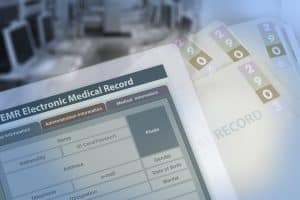While a medical record audit is a lengthy process, it’s a necessary one to ensure your practice is as efficient, organized, and profitable as possible. Clinical documentation in medical records is crucial to delivering the most accurate care to patients, and disorganized medical records can easily hinder this. With medical record auditing, your holistic practice can determine areas that need attention before they result in fraudulent claims and billing activities.
Although medical records audits are necessary preventative measures for both conventional and holistic medical practices, they can be complex and time-consuming. Follow this guide for tips about how to have a thorough and efficient medical record audit to help your holistic practice be as successful as possible.
What is a Medical Record Audit?
Just like any conventional audit, a medical record audit is a process that includes internal or external reviews of what processes are being conducted accurately and what needs to be improved. This includes reviews of medical billing and coding accuracy, procedures, policies, and any other components that affect the efficiency and effectiveness of detailed documentation in your practice.
Medical record auditing is a preventative measure to catch potential errors that can result in liabilities and investigations. For example, these reviews can catch overlooked compliance issues that could impact your bottom line, your practice’s reputation, and the level of care you deliver to patients.
Why is Auditing Medical Records Important For Your Medical Practice?
The benefits of conducting medical record audits are numerous and should be reviewed regularly as a preventative measure at least once a year. Besides checking for compliance and liability errors, a medical record audit can also catch inefficiencies that are costing your holistic practice money.
According to the AACP, some of the benefits of medical record auditing include:
- To determine outliers before large payers find them in their claims software and request an internal audit be done.
- To protect against fraudulent claims and billing activities.
- To reveal whether there is a variation from national averages due to inappropriate coding, insufficient documentation, or lost revenue.
- To help identify and correct problems before insurance or government payers challenge inappropriate coding and conduct governmental investigations.
- To remedy undercoding and code overuse and to bill appropriately for documented procedures.
- To identify reimbursement deficiencies and opportunities for appropriate reimbursement.
- To stop the use of outdated or incorrect codes for procedures.
Auditing is especially important to catch mistakes that may otherwise go undetected and impact your bottom line. A medical records audit can also protect your holistic practice against fraudulent claims and compliance issues. If your practice is consistently submitting inaccurate coding, it could result in lengthy reimbursement delays, investigations, and penalties that cost you both money and time.
Four Tips for a Auditing Medical Records Successfully

When deciding to audit medical records in your holistic practice, the process can be intimidating due to its complexity and lengthy documentation. However, there are some tips you can implement to help speed up the process so you can achieve both an accurate and efficient medical record audit experience! Here are four simple tips to follow for a more successful medical record audit in your holistic practice:

